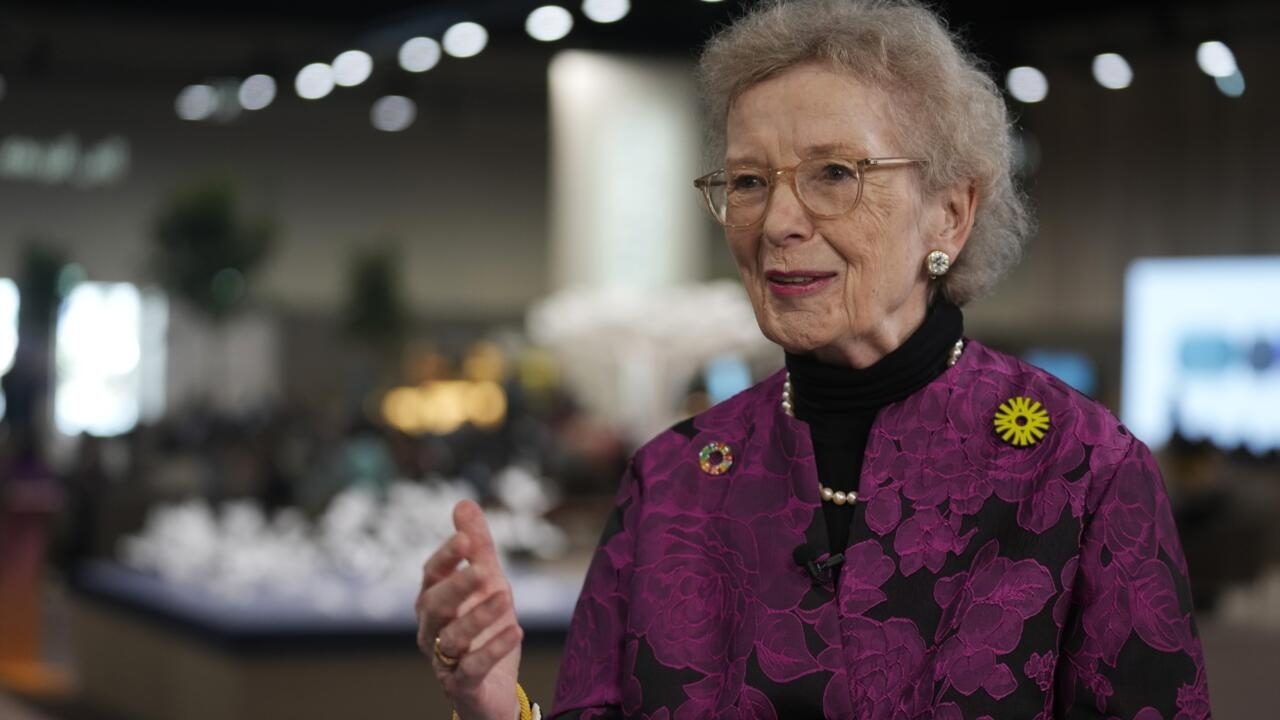
Dubai, UAE – As the UN warns that trillions of dollars are being poured into activities that directly harm nature, prominent climate advocate Mary Robinson has called on governments to take science more seriously amid efforts to bring about nature-based solutions to the climate crisis.
Issued on: 09/12/2023 – 15:10
2 min
Advertising
The former Irish president was speaking in Dubai at the Cop28 climate summit during its themed “nature day” on Saturday, 9 December.
The UN Enviroment Programme chose the day to sound the alarm that investment in activities that promote a stable climate and healthy land was at least 30 times lower than investment in projects that are detrimental to nature.
Robinson – co-chair of the Elders group of former world leaders established by Nelson Mandela – said expertise on nature needed to be taken far more seriously by those in power.
“The Governments that did well in Covid listened to their chief medical officers … and took the tough decisions from the beginning,” Robinson told a side event at Cop28.
“When I was president of Ireland from 1990-1997 I didn’t make any speeches about climate. It was not an issue in Ireland at that time.”
Climate justice
Robinson said it was only when she later became the UN’s high commissioner for human rights did she understand the seriousness of the climate crisis – but she still wasn’t clear on how it impacted her own work at the time.
“Another part of the UN was dealing with it [the issue of climate] and frankly I missed how important it was for my portfolio of human rights, gender equality rights of indigenous peoples and rights of people with a disability,” Robinson said.
“It was when I started working in African countries in 2003, 2004 and 2005 – with a very small NGO – that I saw through the lens of human rights the impact of climate.
“And that brought me to climate justice – not climate change, but climate justice.”
Adaptation deal
Robinson is among a chorus of voices at Cop28 pushing for a strong global goal on adaptation (GGA). The idea was established under the Paris Agreement in 2015 but has not yet been properly defined.
Unlike the 1.5°C temperature limit, it’s less clear what an adaptation target would look like.
The GGA is being discussed as part of the summit’s flagship global stocktake assessment, but progress has been slow on a fair and equitable finance agreement for climate adaptation.
“We’re nowhere near where we should be on finance,” Robinson warned.
“Money is going towards subsidising what’s harming us … rather than getting us back to a harmonious relationship with nature.”
This too, she added, was a question of science.
“That’s why we need a global adaptation target … because countries do not have the science.”
